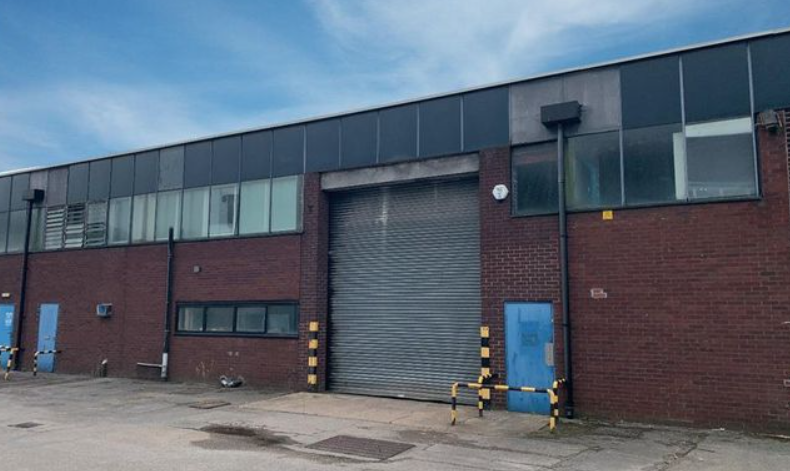Fast & Flexible Commercial Bridging Finance
Commercial Bridging Finance Solutions
This can be used to buy or remortgage a commercial property for your business, an investment property, It may need a full refurbishment or you want to amend the planning.
You might want to get a new tenant in or improve the lease terms.
The high street banks aren’t normally an option due to speed. This is where commercial bridging can help.
It can also be used to purchase commercial property at auction.
Case Study

Their Problem
A new client wanted to buy a warehouse on an established industrial park in East Anglia.
Their existing bankers had confirmed they would help but would not be able to complete within timeframe set by the seller. There was a lot of competition so our client wanted to move quickly
It’s interior condition was poor as it had a very deep tank built into the floor from the previous tenant.
Our Response
As some of our lenders are quite fussy we knew that the property wouldn’t be acceptable to all our lenders due to the tank.
We obtained internal pictures and sent these to our lenders along with confirmation that the tank would be removed at no cost to the client by the previous tenant.
There was a strong exit for the repayment of the bridge. We made sure that the valuer was on both the banks and bridging company valuation panel so there would be no issues during the remortgage.
Result
The client received a 65% loan to value bridge with interest rolled up and four months later moved onto a long term commercial mortgage with their existing bankers after the tank had been removed.
If you need more information on Commercial Bridging Finance contact us on 01565 654005
Commercial Bridging Finance
-
What is Commercial Bridging Finance?
Commercial bridging finance is lending on offices, shops, industrial units, care homes, pubs, restaurants, hotels, business parks for a purchase or remortgage.
-
Do I need experience in Commercial Property?
Not always for the bridging loan but it helps especially on a remortgage if you are planning to keep the property.
-
Can you get commercial bridging finance for a refurbishment?
Yes.
The lender is interested in the costs, time to complete the work, who will be doing it. planning status, your property experience and the end values.
If you are keeping it as an investment then a lease needs to be in place at the point of completion and if you have a tenant lined the proposed terms will be needed.
-
What loan to value will I get?
Usually 65% – 75% loan to value (LTV) of the lower of purchase price or valuation with most lenders and with some based on the valuation.
As well as finding money for the deposit, in most cases you will have to pay the lenders interest and fees upfront.
-
Term of Loan
We usually arrange a term of between nine and twelve months. That gives you sufficient time to finish the project and either sell or remortgage.
If you need more time we have lenders that go up to three years although the longer the term of the loan the greater your contribution as you will have to cover the interest for the duration of the bridging loan.
-
What are the costs?
You will be charged a setup fee by the lender and a monthly interest rate. Some lenders also charge an exit rate.
If any work needs funding by the lender there will be additional fees. These are presented to you upfront before any commitment.
-
How will my interest be calculated?
Most lenders retain interest which increases your contribution and if you have surplus income you might be able to make the payments each month.
We will explain each option.
-
Is the type of Valuation important?
Yes
Some lenders will work off the open market value whilst others will work off the 180 day figure, which is usually lower. This is a restricted time period to sell the property.
A minority work off the 90 day figure which is even lower, but we don’t tend to use that type of lender.
When comparing lenders the type of valuation is crucial.
-
What can catch me out?
Some lenders offer an attractive interest rate to hook you in and later in the process it increases when it’s too late to go to another lender
There are also lenders who offer lower rates for the first 3-6 months of the loan but increase them after that. Often a higher rate at the beginning is better value for you.
What’s the reputation of the broker and the lender like? Some of the smaller lenders may not have the money to complete on the loan.
If your broker is not FCA regulated they won’t have direct access to all of the more established lower-priced lenders.
You can check the regulation by looking at the bottom of their emails or website and either they or the firm should be on the FCA Register.
-
How do I choose a solicitor?
Do you need a specialist solicitor used to bridging finance?
Yes. It’s essential.
If you don’t have a good solicitor the process will be extremely stressful and can even result in missing a deadline.
It’s essential your solicitor has experience of Bridging Finance and dealing with a lender’s solicitor as not all do.
Go to the Law Society website and you can search by postcode and then look at at their website to see if they have a specialist property arm. If they do call them and speak to the Department and find out how many bridging deals they do.
Quite often the lender will have a list of preferred solicitors who you can use.
